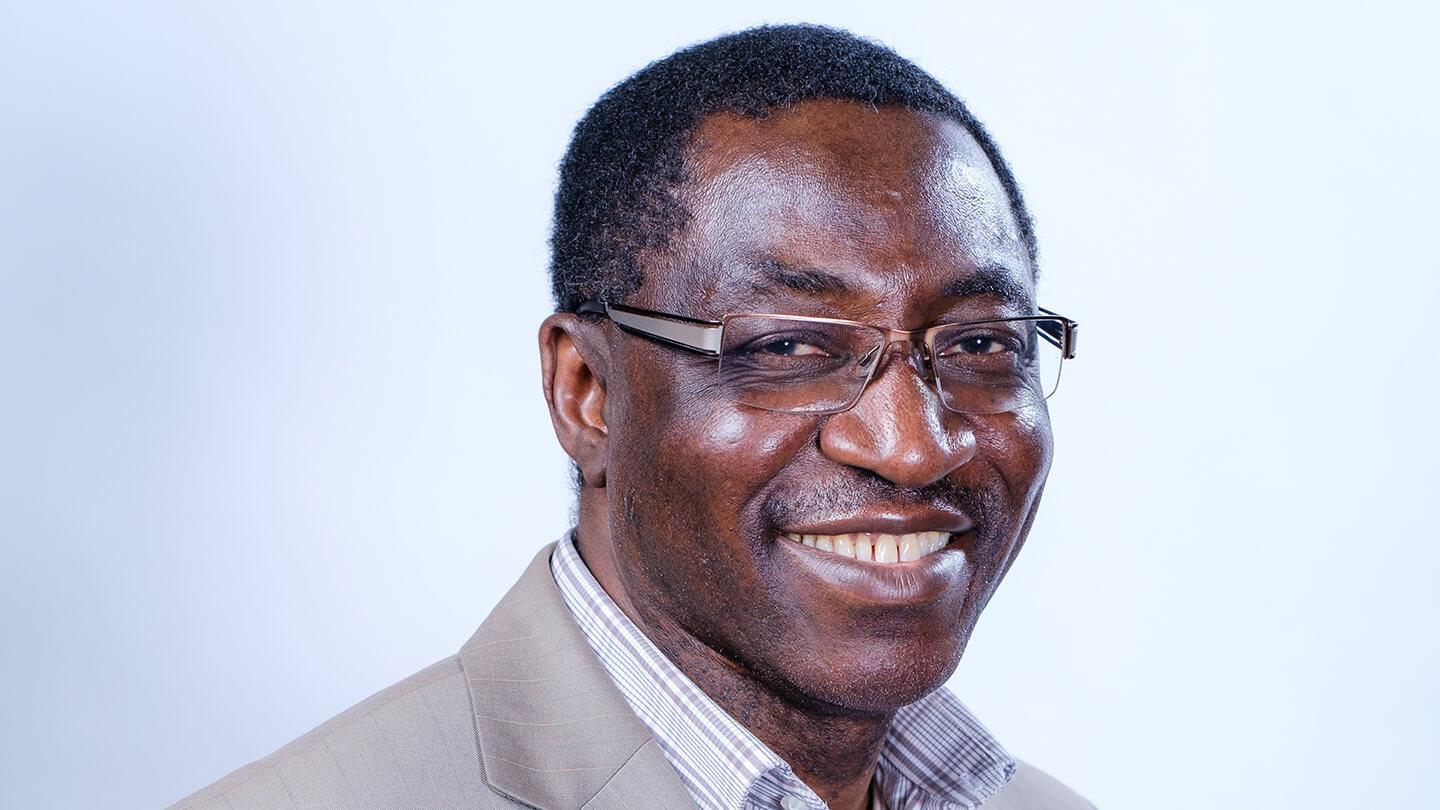Moussa Magassa

- Category: Emerging Alumni Award, 2023
- UVic degree: Graduate Certificate in Learning and Teaching Higher Education, 2017; Doctor of Philosophy in Educational Studies, 2020
- Current hometown: Calgary, AB
- Birthplace: Soringho, Senegal
About Moussa
As the Associate Vice-President, Equity, Diversity and Inclusion at Mount Royal University in Calgary, Moussa Magassa brings with him years of expertise as an educator, communicator and community builder.
He previously studied and worked at UVic as a human rights educator and principal strategist, community engagement, equity, diversity and inclusion and anti-racism education. He also designed UVic’s first anti-racism education curriculum.
Prior to his tenure at UVic, Moussa worked as an immigrant and refugee integration officer in Vancouver, an instructor with the UBC Centre for Intercultural Communication and an EDI and anti-racism consultant for various government institutions, non-profit organizations, primary and secondary schools, post-secondary institutions and business companies.
Before coming to Canada, Moussa worked as a peace researcher and non-violence trainer on the Ceasefire Campaign in South Africa.
What's your favourite memory of being a UVic student?
I was very lucky to be working and studying and doing research in the field I was working in, which is around issues of EDI—equity, diversity, inclusion, anti-racism and social justice. So, I have wonderful and incredible memories, not only because of what I was doing and how my learning was making sense, but it was also the environment—the great people who were around me, the coworkers and the other students I was working with.
What accomplishment are you most proud of?
I designed UVic’s first anti-racism education curriculum, which comes from not only my own experience as a black man at the receiving of racism, but also my academic education, my work and my experiences as a human rights officer. I’m very proud of it, not because I did it alone, but because of all the wonderful [people] who have come along, who were standing with me to create that curriculum and the training we all benefited from.
What skills or traits are needed to be good at what you do?
Be a human being. I am always reminded that being a human being is not a given thing. It is intentional, a work in progress. You have to be always mindful of yourself and others. You have to be committed to doing good for people and in this world. I believe in the African concept of Ubuntu. Ubuntu means that we are a person because of other people. When I reflect on what you call achievements and successes, I will remind you that I was able to achieve these, thanks to all the giants and wonderful people who have tirelessly nurtured me. What I am also good at is always acknowledging the wonderful gifts other people have bestowed on me and to pay it forward every day.
What is the best advice someone has given you?
Prioritize education. My father gave me this advice when I was young. He added that if a thief comes to my house and steals my blanket, my money or any material thing, I will still have my education. My father said that the thief can’t steal my education, because it is in my head. I am the only one who can access it and use it appropriately to better the world. The late Nelson Mandela also agreed with my father when he said that “education is the most powerful weapon you can use to change the world.”
What is something that always makes you laugh?
Life. I laugh at what we, human beings, most of the time miss: the beauty of life. Instead, we are most of the time angry at our shortcomings instead of appreciating all the blessings life has given to us. For example, every time I hit rock bottom, I laugh at life because I know that it is not the last bus, but the announcement of the next one, which may bring with it more opportunities to learn, grow and heal.
What would you do with an extra hour of free time every day?
I would do more volunteer work, helping people. Often when we say volunteer, people think it is just going out and volunteering and changing the world for the better outside. No, for me, volunteering is also about changing the world for the better inside. Sometimes it’s volunteering at home—taking those extra 10 minutes to sit with your partner, children and friends and have a human conversation. I think our society has sometimes forgotten that to achieve greatness outside, we should start at home with our loved ones first.
Is there a food you can’t resist?
Soupou kandia. It is an okra stew with palm oil. You mix the okra with a lot of fresh tomatoes, onions, sweet potato and other vegetables. You can add meat or chicken. Cook it slowly for 45 minutes to 2 hours until the okra has melted and becomes a sauce. To serve, gently spread your soupou kandia on top of a serving of white rice, the Senegalese way.
What is something small or large that you do for others?
The gift of humanity. It is the gift of being there for everyone regardless of their creed. Sometimes it'll be just sharing with them a smile or [saying] good morning or good afternoon.
What is something small or large you do for yourself?
Saying “Al hamdulilah.” Being grateful to Allah, for my blessings, for my life, to the people who have stood by my side all along and learning to forgive those who have let me down. Every day I remind myself of my ethical responsibility to be a human being.
About the Distinguished Alumni Awards
Learn more about how to nominate an alum.
